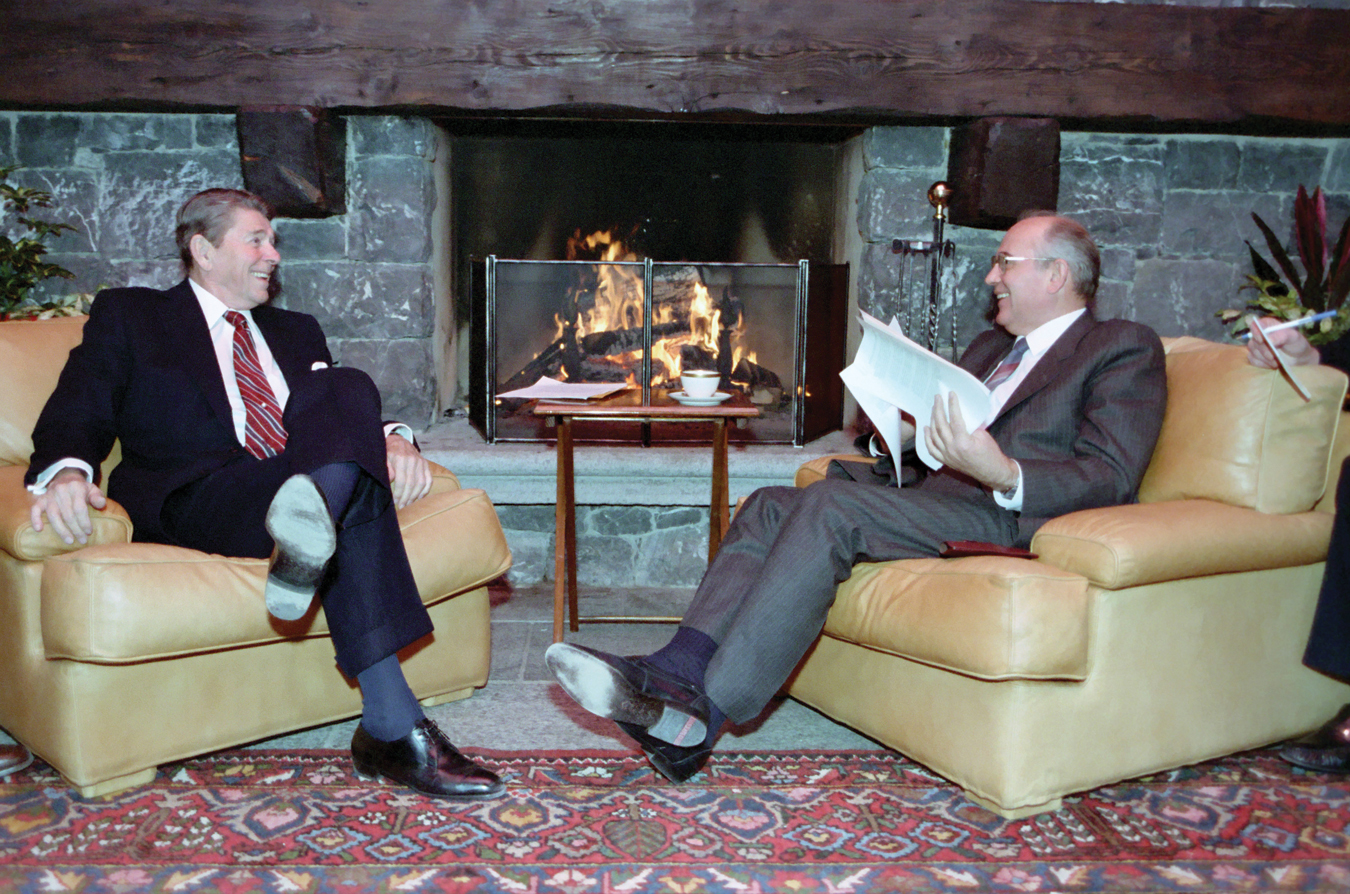A Thaw in Soviet-American Relations.
A Thaw in Soviet-American Relations. A momentous reduction in Cold War tensions soon overshadowed the Iran-Contra scandal. The new Soviet-American accord depended both on Reagan's flexibility and profound desire to end the possibility of nuclear war and on an innovative Soviet head of state who recognized that his country's domestic problems demanded an easing of Cold War antagonism. Mikhail Gorbachev assumed power in 1985 determined to revitalize an economy incapable of delivering basic consumer goods. Hoping to stimulate production and streamline distribution, Gorbachev introduced some elements of free enterprise and proclaimed a new era of glasnost (greater freedom of expression), eventually allowing contested elections and challenges to Communist rule.
Concerns about immense defense budgets moved both Reagan and Gorbachev to the negotiating table. Enormous military expenditures stood between the Soviet premier and his goal of economic revival. With growing popular support for arms reductions, Reagan made disarmament a major goal in his last years in office and readily responded when Gorbachev took the initiative. The two leaders met four times between 1985 and 1988. Although Reagan's insistence on proceeding with SDI nearly killed the talks, by December 1987 the superpowers had completed an intermediate-range nuclear forces (INF) agreement. It eliminated all short- and medium-range missiles from Europe and provided for on-site inspection for the first time. This was also the first time that either nation had agreed to eliminate weapons already in place.
intermediate-range nuclear forces (INF) agreement
Nuclear disarmament agreement reached between the United States and the Soviet Union in 1987, signifying a major thaw in the Cold War. The treaty eliminated all short- and medium-range missiles from Europe and provided for on-site inspection for the first time.

In 1988, Gorbachev further reduced tensions by announcing a gradual withdrawal from Afghanistan, which had become the Soviet equivalent of America's Vietnam. In addition, the Soviet Union, the United States, and Cuba agreed on a political settlement of the civil war in Angola. In the Middle East, both superpowers supported a cease-fire and peace talks in the eight-year war between Iran and Iraq. Within three years, the Cold War that had defined the world for nearly half a century would be history.